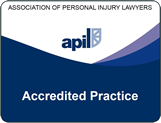1. How to tell if you’re suffering from a work related illness
According to the health and safety executive, nearly 1.7 million workers are suffering from work related ill health new and longstanding in 2020/21. That’s one in 15 people! And yet, many of us go about our lives completely unaware of the potential danger we’re in. How can we safeguard ourselves against these invisible threats?
The first step is understanding what kinds of risks we face in our day-to-day lives. According to the HSE, there are four main types of workplace hazards: chemical, biological, physical, and psychological. Each type of hazard carries with it its own set of symptoms and risks. Here’s a brief overview:
Chemical hazards
Asbestos, mercury, and lead are all chemically hazardous materials that can lead to a number of serious illnesses.
Asbestos is a naturally occurring mineral that was once widely used in insulation and other construction materials. However, exposure to asbestos fibres can cause lung cancer and other diseases.
Mercury is a heavy metal that can be found in thermometers, dental amalgams, and some light bulbs. Exposure to mercury can damage the brain and nervous system.
Lead is a metal that was once used in paint and gasoline. Exposure to lead can cause learning disabilities, behavioural problems, and important damage to the brain and nervous system.
All three of these chemicals are hazardous to human health and can lead to a variety of illnesses. These substances can cause a wide range of health problems, including cancer, respiratory illnesses, and reproductive disorders.
Biological hazards
Biological hazards are caused by exposure to pathogens like bacteria, viruses, and fungi. These can lead to serious illnesses like Legionnaires’ disease, bird flu, and tuberculosis.
Illness related to biological hazards in the workplace can take many forms. Some biological agents, such as Legionnaires’ disease and tuberculosis, are highly contagious and can cause serious respiratory infections.
Other biological agents, such as mould and mildew, can cause allergic reactions or even Asthma. In some cases, biological agents can also be toxic, particularly if they are inhaled or ingested.
These hazards can pose a serious threat to workers’ health, and it is important for employers to take steps to minimize the risks. One way to do this is to provide employees with proper training on how to handle and dispose of biological materials.
Additionally, employers should ensure that ventilation systems are up to date and that work areas are kept clean and free of debris. By taking these precautions, employers can help protect their workers from the dangers of biological hazards.
Physical hazards
Physical hazards include exposure to loud noise, extreme temperatures, and harmful radiation.
Physical hazards are one of the most common types of workplace hazards. They can include exposure to loud noise, extreme temperatures, and harmful radiations.
While some physical hazards are relatively innocuous, others can pose serious health risks.
For example, exposure to loud noise can lead to hearing loss, while exposure to extreme heat can cause heat stroke. And although radiation is essential for many industries, it can also cause cancer if workers are not properly protected.
As a result, it is important for employers to evaluate the risks posed by physical hazards and take steps to protect their workers. By doing so, they can help prevent workplace injuries and illnesses.
Psychological hazards
Psychological hazards at work can take many forms, from stress and anxiety caused by long hours or tight deadlines to more serious mental health issues like post-traumatic stress disorder (PTSD) or depression.
According to Health and Safety Executive, about 822,000 workers are suffering from work-related stress depression or anxiety (new or long-standing) in 2020/21.
These mental health issues can lead to absenteeism, decreased productivity, and an increased risk of accidents.
In severe cases, they can even lead to suicide. Employers have a responsibility to provide a safe and healthy work environment for their employees.
This includes addressing psychological hazards in the workplace. By identifying and addressing mental health issues early on, employers can help prevent them from becoming more serious problems down the road.
If you think you may be suffering from a work-related illness, it’s important to see a doctor as soon as possible. Early diagnosis is key to preventing further health complications down the road.
Be sure to inform your doctor about all potential exposures at your job so that they can properly assess your risk factors and provide you with the best possible treatment plan.
You should also consider contacting a solicitor to discuss the possibility of making a compensation claim. In order to successfully make a claim, you will need to be able to prove that your illness was caused by your work conditions.


